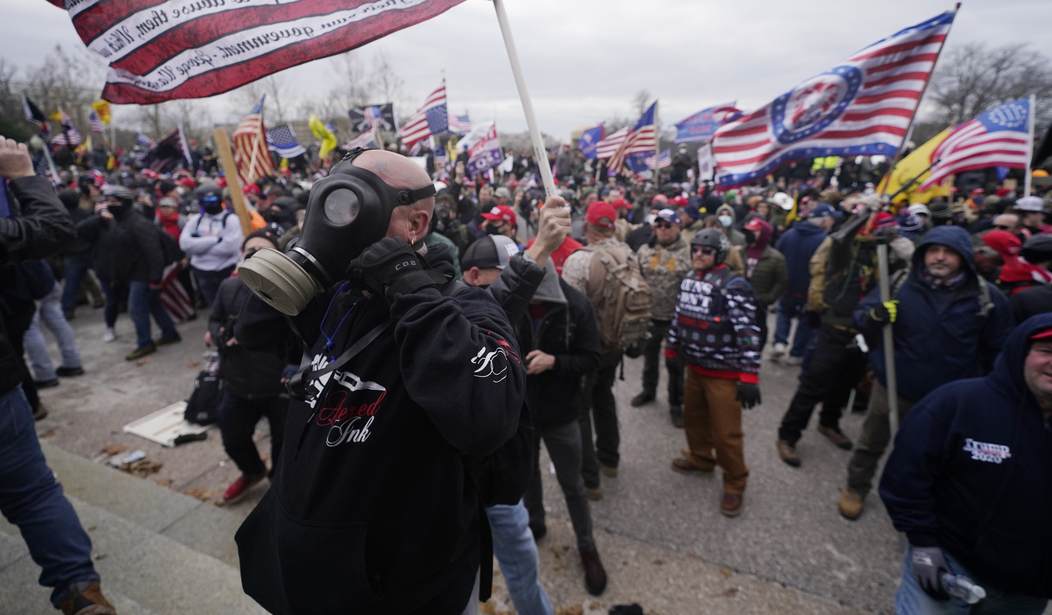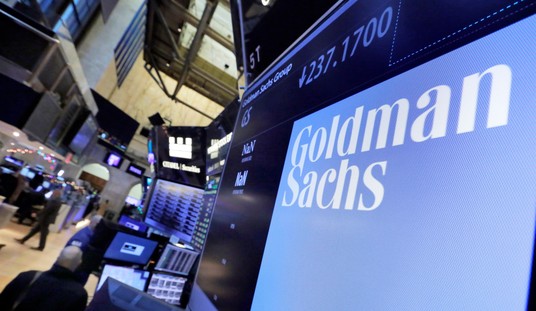In a victory for the Justice Department and against commonsense, a federal appeals court ruled on Friday that merely being in the Capitol was enough to merit conviction for “disorderly” or “disruptive” conduct.
A three-judge panel of the DC Circuit Court of Appeals unanimously ruled that they were participants if people were aware of what was happening around them.
“A lone hiker on a mountaintop can sing at the top of his lungs without disturbing a soul; a patron in a library cannot,” the panel of the D.C. Circuit Court of Appeals ruled in an 18-page opinion authored by Judge Karen Henderson, an appointee of George H.W. Bush. “It is entirely appropriate to clap and cheer when a keynote speaker steps to the podium but to do so once the room has fallen quiet and he has begun to speak would ordinarily be disruptive. Thus, in determining whether an act is disorderly, the act cannot be divorced from the circumstances in which it takes place.”
“Even passive, quiet and nonviolent conduct can be disorderly,” Henderson added, citing Supreme Court precedent that held sit-ins or protests that block traffic can be disorderly.
Compare and contrast this novel concept of "disorderly conduct" with the free pass given to all George Floyd Memorial Riot and Looting Festival participants. In fact, remember when we were told that going to these riots removed social distancing and lockdown regulations?
The finding has an even larger hole in it.
“[Jan. 6 defendant Russell] Alford paints himself as a passive observer, and, granted, his conduct does not rise to the level of culpability of many of his compatriots,” Henderson wrote for the panel. “But he made a deliberate choice to join the crowd and enter the Capitol when he was plainly not permitted to do so. The jury was not required to view Alford’s actions in isolation as though he were the only one at the Capitol that day.”
The claim that people were "plainly not permitted" to enter the Capitol on January 6 is utter horsesh**.
READ MORE: WATCH: Footage Shows Capitol Officers Uncuffing J6 Protester, Giving Fist Bump Before Releasing Him
How this case plays out is very important.
Nearly all of the 1,200-plus Jan. 6 defendants to date have been charged with disorderly and disruptive conduct under one of two federal laws: 1,156 have been charged with engaging in disorderly or disruptive conduct in a restricted building, and 1,021 have been charged with disorderly or disruptive conduct in a Capitol building. About 1,000 have been tagged with both charges.
Without his bizarre interpretation of the law, the number of January 6 defendants would be in the double digits, and those would've actually have had to commit a crime generally recognized by a civilized society rather than permitting the Justice Department to play the role of Humpty-Dumpty in Lewis Carroll's "Alice in Wonderland."
“When I use a word,’ Humpty Dumpty said in rather a scornful tone, ‘it means just what I choose it to mean — neither more nor less.’
’The question is,’ said Alice, ‘whether you can make words mean so many different things.’
’The question is,’ said Humpty Dumpty, ‘which is to be master — that’s all.”
There is every reason to hope that this will not be the last word. The Supreme Court has agreed to take up the case of Joseph Fisher, who was convicted of "obstructing an official proceeding" by one of the January 6 kangaroo courts.
READ MORE: SCOTUS Takes Up Obstruction Charge Appeal for J6 Defendant - Could Be Huge for Trump and Others
The Justice Department fought tooth and nail to prevent this test of commonsense reading of the English language vs. political vendetta from being heard by SCOTUS, and for good reason.
Based on recent cases, how the Supreme Court might approach this case and how it might come to a decision on the reach of the “obstruction” statue at issue can be simply summarized in this fashion — if Congress had intended such a broad prohibition on conduct as under the interpretation advanced by DOJ, Congress needed to say so expressly in the text of statute. Over the past 40 years the Court has resisted broad interpretations of criminal statutes by DOJ where Congress could have spoken more clearly but failed to do so in the language used.
Here, if Congress had intended the “residual clause” to reach conduct that was entirely different in kind and character from the evidence-impairing conduct prohibited in Subsection (c)(1), then it needed to have said so. The modern “originalist” Court has rejected as part of its role the power to interpret a statute in order to accomplish what might have been the legislative goal where the language used is uncertain. The Court has consistently over that time rejected the expansive application of statutory language by DOJ in the area of “obstruction of justice.” It has narrowly construed language such that an “ordinary person” would realize when his or her conduct crossed the line into criminal “obstructive” behavior. If Congress wants broader application, Congress needs to speak clearly by using expressly broader language.
What the DC Circuit has done is nothing other than legitimize a political vendetta. If we are ever fortunate enough to get another workable GOP majority in the House and Senate, the judges who validated this abuse must be held to account. Impeachment, even if failing to remove them from office, would at least deter other judges from acting like sock puppets to the Department of Justice.














Join the conversation as a VIP Member